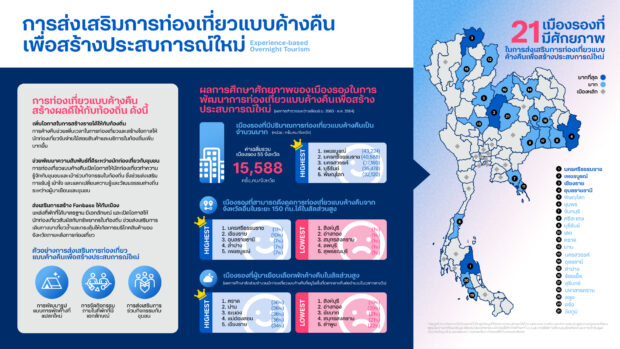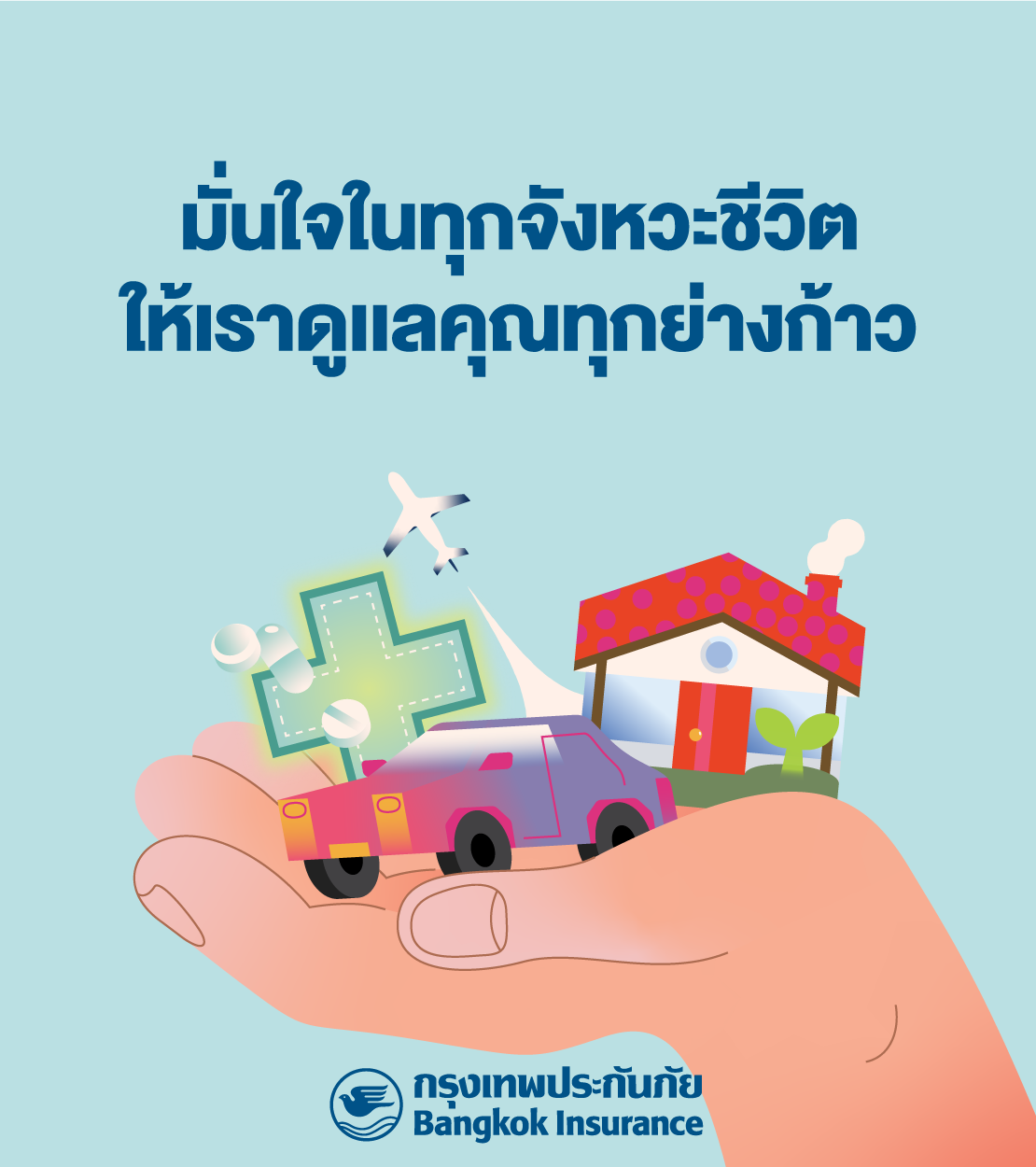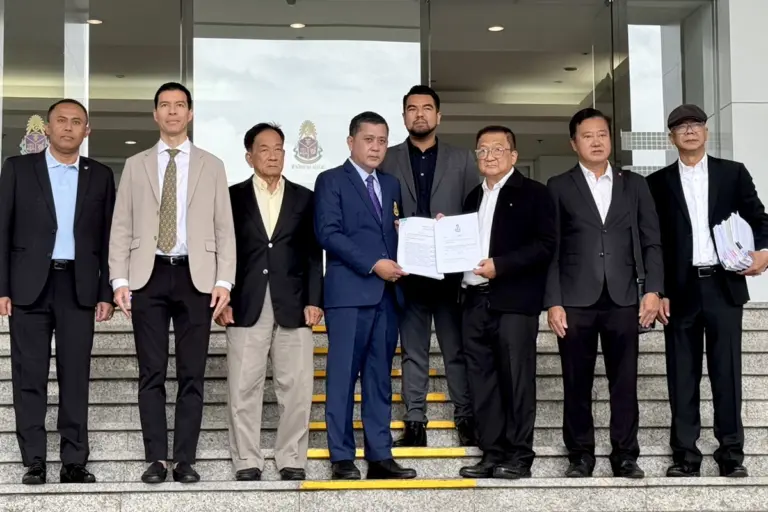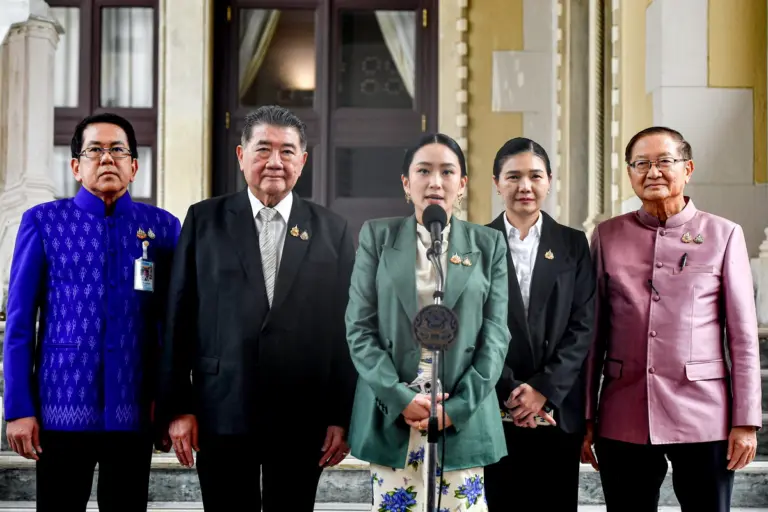ดีแทค- สถาปัตย์ จุฬาฯ-บุญมีแล็บ เผยรายชื่อเมืองรองที่ควรส่งเสริมการท่องเที่ยวแบบค้างคืน เน้นสร้าง Fanbase – แลกเปลี่ยนวัฒนธรรม- เพิ่มโอกาสพัฒนาท้องถิ่น
อีกหนึ่งยุทธศาสตร์การส่งเสริมการท่องเที่ยวในเมืองรองที่น่าสนใจจากผลการศึกษาที่จัดทำขึ้นโดยดีแทค คณะสถาปัตยกรรมศาตร์ จุฬาฯ และบุญมีแล็บ ในโครงการส่งเสริมการท่องเที่ยวในเมืองรองผ่านการวิเคราะห์ข้อมูลการเคลื่อนที่ (mobility data) คือ การส่งเสริมการท่องเที่ยวแบบค้างคืนเพื่อสร้างประสบการณ์ใหม่ (Experience-based overnight tourism) ในเมืองรอง
ผศ.ดร.ณัฐพงศ์ พันธ์น้อย อาจารย์ประจำภาควิชาการวางแผนภาคและเมือง คณะสถาปัตยกรรมศาสตร์ จุฬาลงกรณ์มหาวิทยาลัย อธิบายว่า ใน “การพักค้าง” เป็นดัชนีหนึ่งในการวัดความสำเร็จของการท่องเที่ยว เมืองที่มีผู้พักค้างมากถือเป็นเมืองที่มีความสำเร็จด้านการท่องเที่ยว เพราะการพักค้างทำให้เกิดการใช้จ่ายในพื้นที่มากกว่าการเดินทางแบบเช้าไปเย็นกลับ เพิ่มมูลค่าทางเศรษฐกิจเชิงการท่องเที่ยวให้แก่จังหวัด
นอกจากนี้ การพักค้างยังเป็นการสร้างผลกระทบเชิงบวกต่อสังคม เพิ่มโอกาสให้นักท่องเที่ยวมีกิจกรรมร่วมและปฏิสัมพันธ์กับคนในท้องถิ่น ยิ่งพักค้างหลายวันยิ่งมีโอกาสได้เรียนรู้และแลกเปลี่ยนวัฒนธรรมมากยิ่งขึ้น จะเห็นได้ว่าการพัฒนาการท่องเที่ยวแบบค้างคืนเพื่อประสบการณ์ใหม่นั้น มีเป้าหมายในการสร้างฐานแฟนคลับ (Fanbase) ของเมืองนั้นๆ ก่อให้เกิดการท่องเที่ยวที่เน้น “คุณภาพ” กล่าวคือ ทำให้เกิดการเดินทางมาท่องเที่ยวซ้ำ นักท่องเที่ยวอาจมีการอุดหนุนสินค้าอื่นๆ แม้จะกลับมายังภูมิลำเนาแล้ว และนี่คือความสำคัญของการพัฒนาการท่องเที่ยวแบบพักค้างที่จะนำมาสู่ “ความยั่งยืน” ทางเศรษฐกิจเชิงการท่องเที่ยวในระยะยาว
“การท่องเที่ยวไม่ได้มีมิติทางด้านเศรษฐกิจเท่านั้น แต่ยังส่งผลต่อมิติทางสังคมโดยเฉพาะการแลกเปลี่ยนเรียนรู้วัฒนธรรมและประสบการณ์ (Experience and Cultural Exchange) ซึ่งนี่คือผลกระทบเชิงบวกที่การท่องเที่ยวสามารถส่งมอบให้กับท้องถิ่น” ผศ.ดร.ณัฐพงศ์ กล่าว
3 เทรนด์การท่องเที่ยวแบบพักค้าง
ในปัจจุบันจะเห็นว่า มีผู้ประกอบการจำนวนหนึ่งพยายามพัฒนาการท่องเที่ยวแบบค้างคืนในรูปแบบการสร้างประสบการณ์ใหม่เพื่อดึงดูดนักท่องเที่ยวให้เดินทางมาเยือน ซึ่งพบว่ามีแนวโน้มในการออกแบบการท่องเที่ยวแบบค้างคืนมีแนวโน้มที่สำคัญอยู่ 3 ประการ ได้แก่
1.การพัฒนารูปแบบการพักค้างที่แปลกใหม่ ตัวอย่างเช่นการพัฒนาที่พักแบบ car camping ที่พักแบบ glamping ที่พักแบบบ้านต้นไม้ เป็นต้น
2.การจัดการกิจกรรมภายในที่พักที่มีเอกลักษณ์ ที่พักหลายแห่งพยายามจัดให้มีกิจกรรมที่น่าสนใจเพื่อให้บริการกับผู้มาพักแรม เช่น การสอนทำอาหารโดยเชฟชื่อดังในที่พัก การจัดที่กิจกรรมโยคะส่งเสริมสุขภาพยามเช้า การร่วมกับเจ้าของที่พักในการออกเรือจับปลาหรือเก็บเกี่ยวผลผลิตทางการเกษตร เป็นต้น
3.การส่งเสริมการทำกิจกรรมร่วมกับชุมชน ในปัจจุบันมีผู้ประกอบการโรงแรมและที่พักที่ร่วมมือกับชุมชนรอบข้างเพื่อจัดกิจกรรมที่เปิดโอกาสให้นักท่องเที่ยวได้ทำความรู้จักวิถีชีวิตและวัฒนธรรมในชุมชน ตัวอย่างเช่นโรงแรม Once Again Hostel ในเกาะรัตนโกสินทร์ที่ร่วมมือกับชุมชนรอบข้างจัดโปรแกรมเรียนรู้ประวัติศาสตร์ความเป็นมาในพื้นที่ หรือกรณีของโรงแรม The Tamarind Village ในเชียงใหม่ที่มีการจัดทัวร์เดินชมวัดและโบราณสถานรอบๆ โรงแรม
การสร้างประสบการณ์ใหม่ให้กับผู้เข้าพักนับเป็นปัจจัยสำคัญในการดึงดูดการท่องเที่ยวแบบพักค้าง ดังเห็นได้จากในปัจจุบันเว็บไซต์ Airbnb ได้จัดโครงการ Airbnb experiences เพื่อเปิดโอกาสให้โฮสต์เจ้าของที่พักได้นำเสนอกิจกรรมที่จะสร้างประสบการณ์สุดพิเศษแก่ผู้มาพักแรม ทั้งในรูปแบบกิจกรรมการเรียนรู้วิถีชีวิตแบบคนท้องถิ่น และกิจกรรมแชร์ความรู้ความสามารถของโฮสต์ให้กับผู้เข้าพัก เช่น การสอนทำเครื่องหนังอิตาลี การทำขนมปัง การนั่งสมาธิ เป็นต้น
อัตลักษณ์ที่งดงามและที่พักที่ได้มาตรฐาน คือ กุญแจสำคัญ
ผลการสำรวจโดยคณะผู้วิจัยจากคณะสถาปัตยกรรมศาสตร์ จุฬาลงกรณ์มหาวิทยาลัยพบว่า นักท่องเที่ยวชาวไทยที่ต้องการเดินทางมาเรียนรู้ประสบการณ์ใหม่ในท้องถิ่นมักให้ความสำคัญกับทัศนียภาพ อาหาร สินค้า และกิจกรรมที่สะท้อนอัตลักษณ์ของพื้นที่ได้เป็นอย่างดี นอกจากนั้น ในการเลือกที่พักนักท่องเที่ยวโดยส่วนใหญ่ให้ความสำคัญกับคุณภาพของที่พัก ความใกล้ชิดกับธรรมชาติ ความเป็นส่วนตัว และการให้บริการของโฮสต์เจ้าของที่พัก ดังนั้นการส่งเสริมการพัฒนาการท่องเที่ยวแบบพักค้างเพื่อสร้างประสบการณ์ใหม่ในจังหวัดเมืองรองต้องอาศัยความร่วมมือของภาครัฐ ภาคเอกชน และภาคประชาชนในการร่วมกันรักษาดูแลทรัพยากรทั้งทางธรรมชาติและวัฒนธรรมในพื้นที่ให้คงไว้ซึ่งความงามและคุณค่า มีการสร้างข้อตกลงในการพัฒนาพื้นที่อย่างสมดุล และร่วมกันรณรงค์ให้ผู้ประกอบการและประชาชนในพื้นที่ร่วมกันพัฒนาสินค้าและการบริการที่ได้มาตรฐาน สะท้อนอัตลักษณ์และคุณค่าของพื้นที่อย่างแท้จริง
“การสร้างความร่วมมือระหว่างหน่วยงานภาครัฐ ภาคเอกชน และประชาชนในพื้นที่ ในการรักษาอัตลักษณ์และคุณค่าของเมือง ไปพร้อมกับการพัฒนากิจกรรมการท่องเที่ยว สินค้า บริการ และที่พักในท้องถิ่นให้มีคุณภาพ ลดการสร้างผลกระทบต่อชุมชนและสิ่งแวดล้อม นั้นเป็นกุญแจสำคัญในการดึงดูดการท่องเที่ยวแบบค้างคืนและเพิ่มเวลาการอยู่ในพื้นที่ของนักท่องเที่ยว อีกทั้งยังเป็นหนทางในการพัฒนาการท่องเที่ยวเมืองรองให้เกิดความยั่งยืน” ผศ.ดร.ณัฐพงศ์ กล่าว
……
Mobility data reveals second-tier provinces with potential to develop overnight tourism
Another tourism-promotion strategy that came out of the study on movement patterns and concentration of Thai tourists during COVID-19 outbreak based on mobility data focuses on developing experience-based overnight tourism.
Asst. Prof. Dr. Nattapong Punnoi, Urban and Regional Planning Department, Faculty of Architecture, Chulalongkorn University, said, “Overnight stay is an indicator of tourism success. Cities with many overnight tourists are considered successful because overnight tourism can generate higher revenue and economic value than same-day tourism.”
Overnight tourism also creates higher positive social impacts as tourists have more opportunities to interact and engage with local communities. The longer the visit, the higher chance they are exposed to a cultural exchange experience. The aim of experience-based overnight tourism development is to build a “fanbase” of a city, which leads to quality tourism and repeat visits. Also, tourists will continue to purchase products from those areas even after they have returned to their hometown. This is the importance of experience-based overnight tourism development and how it can pave way for sustainable tourism economy.
“Tourism can generate a positive economic and social impact to local community, especially in regards to experiences and cultural exchanges,” Asst. Prof. Dr. Nattapong added.
Three Overnight-Tourism Trends
The study highlights three important trends in developing experience-based overnight tourism.
1. Unusual accommodation types, such as car camping, glamping, and tree houses.
2. On-site activities that are unique, such as cooking class by a famous chef, morning yoga class, recreational fisheries, and produce picking.
3. Activities that allow tourists to engage with the local community. Hotels may collaborate with local communities in arranging activities that allow tourists to learn more about their culture. Once Again Hostel on Rattanakosin Island, for example, works with the neighboring communities in conducting a historical tour around its neighborhood. The Tamarind Village in Chiang Mai, meanwhile, offers a local temple tour.
Creating new experiences for visitors is a core element of overnight trips. Taking the cue, Airbnb has introducedAirbnb experiences where tourists can immerse themselves in “one-of-a-kind activities organized by local experts”, while the hosts can organize workshops, such as bread baking, leather crafts, and meditation, to share their knowledge and skills with visitors.
With their various differences, second-tier provinces vary in their ability to attract overnight tourists. The research team analyzed the mobility data between June 2020 and Oct 2021 to measure each province’s potential to develop experience-based overnight tourism through three indicators.
Concentration of overnight tourists: This indicator illustrates which second-tier provinces have high concentrations of overnight tourists. According to the data analysis, the concentration of overnight tourists is 2 – 2.5 times higher than the average in some second-tier provinces. The top five are Phetchabun, Nakhon Si Thammarat, Nakhon Sawan, Buri Ram and Phitsanulok.
Ratio of overnight tourists to day trippers: This indicator reflects a province’s potential to attract overnight tourists. Top five second-tier provinces in this category are Trat (36.4%), Nan (36.2%), Ranong (35.8%), Mae Hong Son (35.6%), and Chiang Rai (34.3%). On the other hand, the provinces that are most popular for day trips but attract very few overnight tourists are Sing Buri, Ang thong, Chai Nat, Samut Songkhram, and Lamphun. In these provinces, the ratio of overnight tourists to day trippers varies between 19% and 22%.
Ratio of overnight tourists from provinces within a 150-km radius to the total number of overnight trips within the same area: a province’s ability to attract tourists from nearby provinces is a key to encourage repeat visits. The second-tier provinces with the biggest percentage of overnight tourists from nearby provinces are Nakhon Si Thammarat (11%), Chiang Rai (10%), Ubon Ratchathani (7%), Lampang (7%), and Phetchabun (7%).
With these three indicators combined, they highlight 21 second-tier provinces with potential to develop experience-based overnight tourism. The list includes Nakhon Si Thammarat, Phetchabun, Chiang Rai, Ubon Ratchathani, Phitsanulok, Chumphon, Chanthaburi, Si Sa Ket, Buri Ram, Loei, Trat, Nan, Nakhon Sawan, Udon Thani, Lampang, Roi Et, Surin, Maha Sarakham, Satun, Trang, and Chaiyaphum, respectively.
“The analysis of the three indicators and the composite index will provide a guideline on how each province can design tailored tourism strategy for maximum efficiency,” Asst. Prof. Dr. Nattapong said.
For example, provinces with high ability to attract tourists from neighboring provinces can develop a strategy to generate repeat visitors through local activities, such as seasonal fruit planting and harvesting, handicraft workshops, and sports tournaments.
For provinces with a high number of same-day visitors but are not popular as an overnight destination, nighttime activities can be developed to attract more overnight tourists, such as light and sound shows, night sky tours, and nighttime adventures.
Local Identity and Quality Accommodation
The research from Chulalongkorn University’s Faculty of Architecture also suggests that top four factors that encourage experience-based tourism are scenery, food, products, and activities that embody the local identity. In choosing an accommodation, people also consider factors like quality, closeness to nature, privacy, and service attentiveness. Thus, the cooperation among local authorities, private sector and communities is required in developing experience-based overnight tourism to ensure balanced development. They need to work to together to preserve natural resources and local culture as well as motivate local business owners and communities to create quality products and services that truly reflect local values.
“The collaborative efforts between the government, private sector, and local communities in preserving local identity as well as developing tourism activities, products, services, and accommodations to meet a high standard, while also minimizing negative impact towards communities and the environment are key to attracting overnight tourists and increasing their length of stay. It will also pave way for sustainable tourism development in second-tier provinces,” Asst. Prof. Dr. Nattapong concluded.








